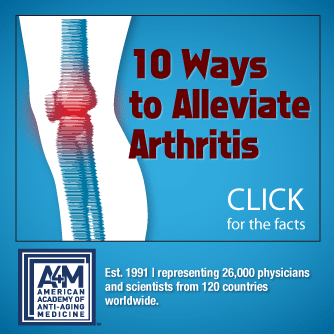While the inflammatory response is a potent defense mechanism the body mounts to counter infection, the process of inflammation itself can be a powerful negative process in the body. Chronic inflammation is suspected to be an overexpression or lack of control of the body’s normal protective mechanisms, and the condition has been linked to a range of conditions linked to heart disease, osteoporosis, cognitive decline and Alzheimer’s, type-2 diabetes, and arthritis. Indeed, chronic, unchecked inflammation reduces a person’s vital healthy years. Vishwa Deep Dixit, from Yale School of Medicine (Connecticut, USA), and colleagues have identified a compound, known as Nlrp3, as a trigger of aging-related inflammation. The team revealed that this compound causes a loss of function that manifests as insulin resistance, bone loss, frailty, and cognitive decline. The study authors are hopeful that future therapeutics targeted at lowering Nlrp3 might “delay multiple age-related chronic diseases.” [Youm, Yun-Hee; Grant, Ryan W.; McCabe, Laura R.; Albarado, Diana C.; Nguyen, KimYen; Ravussin, Anthony; Dixit, Vishwa Deep, et al. “Canonical Nlrp3 Inflammasome Links Systemic Low-Grade Inflammation to Functional Decline in Aging.” Cell metabolism, volume 18 issue 4 pp.519 – 532.]
The most common cause of disability in the United States, arthritis is group of more than 100 rheumatic diseases and conditions that affect joints, the tissues which surround the joint and other connective tissue. According to the US Centers for Disease Control & Prevention (CDC), arthritis affects 52.5 million US adults – that’s 1 in every 5 adult Americans. As the U.S. population ages, the number of adults with arthritis is expected to increase sharply to 67 million by 2030.
[US Centers for Disease Control and Prevention; http://www.cdc.gov/chronicdisease/resources/publications/AAG/arthritis.htm]
Scientific data reveals new contributory factors to arthritis. Most notably, modifiable lifestyle decisions are a major consideration. Smoking, obesity, and diabetes may raise a person’s risk of developing rheumatoid arthritis. Ian Bruce, from The University of Manchester (United Kingdom), and colleagues analyzed data collected on 25,455 subjects enrolled in the European Prospective Investigation of Cancer, Norfolk, UK (EPIC-Norfolk), ages 40-79 years, gathered from 1993 to 1997. When they compared 184 participants who went on to develop arthritis to those who did not, they found that smoking, obesity and having diabetes all increased the risk of developing RA. Submitting that: “Several easily ascertained clinical and lifestyle factors can be used to stratify populations for risk,” the researchers are hopeful their findings may be used to develop a simple screening tool with which to identify patients with a higher risk of developing RA who could be offered advice to reduce their risk.
[Lahiri M, Luben RN, Morgan C, Bunn DK, Marshall T, Lunt M, Verstappen SM, Symmons DP, Khaw KT, Wareham N, Bruce IN. “Using lifestyle factors to identify individuals at higher risk of inflammatory polyarthritis (results from the European Prospective Investigation of Cancer-Norfolk and the Norfolk Arthritis Register–the EPIC-2-NOAR Study).” Ann Rheum Dis. 2013 Mar 16.]
Interestingly, bacterial disturbances in the gut may play a role in autoimmune attacks on the joints, such as rheumatoid arthritis. The human gut is home to hundreds of species of beneficial bacteria, including Prevotella copri, which ferment undigested carbohydrates to fuel the body and keep harmful bacteria in check. While the human immune system possesses the ability to distinguish benign or beneficial bacteria from pathogenic bacteria, when the gut’s microbial ecosystem is thrown off balance, P. Copri can contribute to the onset of rheumatoid arthritis. Dan R. Littman, from New York University School of Medicine (New York, USA), and colleagues employed advanced DNA analysis to compare gut bacteria from fecal samples of patients with rheumatoid arthritis and healthy individuals. The researchers found that P. copri was more abundant in patients newly diagnosed with rheumatoid arthritis than in healthy individuals or patients with chronic, treated rheumatoid arthritis. Moreover, the overgrowth of P. copri was associated with fewer beneficial gut bacteria belonging to the genera Bacteroides. The study authors conclude that: “This work identifies a potential role for P. copri in the pathogenesis of [rheumatoid arthritis].”
[Scher JU, Sczesnak A, Longman RS, Segata N, Ubeda C, Littman DR, et al. “Expansion of intestinal Prevotella copri correlates with enhanced susceptibility to arthritis.” Elife. 2013 Nov 5;2(0). doi:pii: e01202.]
Among healthy adults, simple changes in diet can be effective in reducing inflammation – a contributing factor in arthritis – in as little as six weeks. Lynnette Ferguson, from The University of Auckland (New Zealand), and colleagues studied 30 healthy men and women, selected for their initially “poor” diets, who were encouraged to eliminate refined and processed foods and to follow a Mediterranean type diet over six weeks – featuring increased amounts of fish, vegetables, unrefined cereals, and “good” fats such as olive oil and avocado. A prominent feature of the diet was also that it was gluten-free. Recipes were supplied to the participants. After six weeks, the team observed that biomarkers of inflammation, most notably C-reactive protein (CRP), were markedly reduced. [“Diet change works swiftly in reducing risk,” University of Aukland, 14 January 2013.]
VIEW 10 Ways to Alleviate Arthritis
Click here to download pdf version
To stay updated on the latest scientific evidence on the role of inflammation in joint health, and natural approaches to alleviate arthritis, visit The World Health Network, www.worldhealth.net, the official educational website of the A4M and your one-stop resource for authoritative anti-aging information. Be sure to sign up for the FREE Longevity Magazine® e-Journal, your weekly health e-newsletter featuring wellness, prevention, and biotech advancements in longevity.




